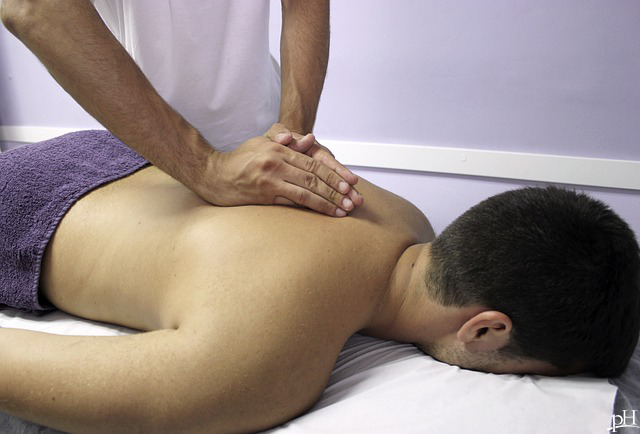Massage therapy: A necessary luxury?
9 years ago | Proactive Health
By pH health care professionals
Massage therapy involves the rubbing and kneading of muscles and other soft tissues. The practice dates back thousands of years. There are references to massage found in ancient writings from China, Japan, Egypt and India. It’s no surprise it’s been around for so long. Many people use massage to soothe sore muscles, reduce stress and improve blood flow. While the average person may see massage therapy as a luxurious indulgence, your massage therapist may disagree and recommend you regularly visit for ongoing wellness!
Types of Massage
There are different types of massage each with specific techniques and goals depending on what your body needs. According to the American Massage Therapy Association, some of the common forms are:
-
Swedish: Most common type of massage. Basic idea behind this approach is pain is often caused by tense and tight muscles that affect blood circulation and irritate the nerves. Goal is to relax the muscles and improve circulation by directly treating these problems.
-
Deep tissue: For muscle damage from an injury such as whiplash or a back strain. Here it is mainly the deeper layers of muscle that are massaged. Strong pressure is applied to muscles and tendons, using the fingers to try to relieve tension in the body. The deeper the massage the more painful it can be.
-
Sports: To help prevent athletic injury, maintain flexibility and help recovery.
-
Chair: Massage of the upper body while fully clothed and seated in a portable massage chair.
Benefits of Massage
According to the National Center for Complementary and Integrative Health (NCCIH), massage therapy may be beneficial for relaxation, boosting your mood and reducing pain.
Let’s take a look at some of the existing research about massage and specific health issues.
Massage for Pain
A 2008 research review and 2011 NCCIH-funded clinical trial concluded massage may help chronic low-back pain. However, a more recent study, published last year, found massage provided only short-term improvement in lower back pain. Keep in mind; the most appropriate treatment for back pain depends on the cause.
Other NCCIH clinical trials have found massage may also help with chronic neck pain and osteoarthritic knee pain.
Cancer
Research suggests massage therapy for cancer patients may reduce pain, promote relaxation and boost mood -- at least in the short term, NCCIH said. Additionally, a brand new study published in Cancer Nursing found slow-stroke back massage along with routine nursing care may improve the symptoms of pain, fatigue and sleep disorders in leukemia patients.
Cancer patients should ensure their massage therapist understands their unique needs. The National Cancer Institute recommends therapists avoid massaging open wounds, bruises or areas with skin breakdown. They should also avoid areas with a blood clot in a vein, sensitive areas after radiation and the tumor site.
Mental Health
After reviewing 17 clinical trials, researchers concluded massage therapy may help reduce depression, NCCIH reported. Massage therapy, as well as other forms of relaxation, may also help with anxiety, a 2010 study found.
Fibromyalgia
Massage therapy may help temporarily reduce pain, fatigue and other symptoms associated with fibromyalgia. However, the evidence is not definitive, according to a 2010 review, NCCIH reported.
Babies
Massaging preterm infants using moderate pressure may improve weight gain, suggests a 2010 review, according to NCCIH. Infant massage may also improve the quality of mother-child interactions, another study found.
Children with Asthma
Massage may help reduce anxiety among children with asthma, an interesting study found. The parents were taught to provide massage therapy for 20 minutes before bedtime for a month. Young children showed an immediate decrease in anxiety and cortisol levels after the massage, and their asthma and lung function improved.
As always, be proactive about your health. Remember, treating yourself and taking the time to relax mentally and physically are very important to your overall health. Don’t feel guilty about booking that next spa day!
Enjoy Your Healthy Life!
The pH professional health care team includes recognized experts from a variety of health care and related disciplines, including physicians, health care attorneys, nutritionists, nurses and certified fitness instructors. To learn more about the pH Health Care Team, click here.







